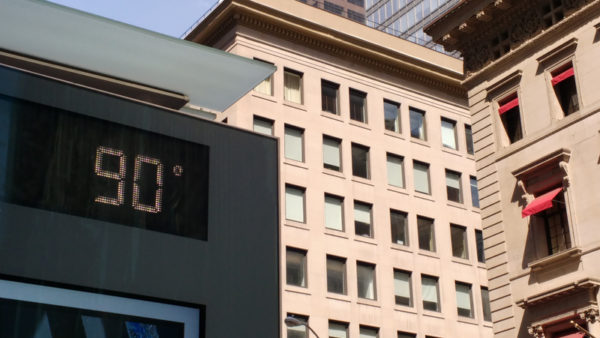10 December 2013
It’s a wicked world out there. Transparency International’s latest Corruption Perceptions Index shows that of the 177 countries surveyed, 70% scored less than 50 out of 100 for the integrity of their public sectors.
The good news is that the problem is not getting worse: the agency’s 2003 table showed exactly the same percentage of states falling below the half-way mark.
The bad news is that neither is it getting any better, despite many governments’ bringing in anti-corruption legislation and launching programmes to encourage public employees to behave properly.
As the report notes, politicians seeking election frequently promise to “wipe out corruption”, but fail to do so once elected.
“The Corruption Perceptions Index 2013 demonstrates that all countries still face the threat of corruption at all levels of government, from the issuing of local permits to the enforcement of laws and regulations,” said Huguette Labelle, Chair of Transparency International.
Generally speaking, the richer and smaller the country the greater the integrity of its public officials.
The table is headed by Denmark and New Zealand (91) and the top ten includes the Scandinavian countries, Switzerland, the Netherlands, Singapore and Canada.
However, there are notable exceptions. In Europe, Spain has a corruption rating of 59, Italy 43 and Greece is assessed at 40, the same score as China.
The cases of Spain and Italy show a rapid decline in integrity: their integrity ratings were 10 points higher in 2003.
Greece has suffered a smaller decline – it was 43 in 2003 – but it also shows how difficult it can be to legislate away corruption. Since 2010 all Greek ministries and public bodies have had to post their decisions on a public database that can be accessed online, but so far the results have not been apparent.
The countries at the bottom of the index are those with the lowest GDPs, and hence the poorest paid public servants.
Sub-Saharan Africa and Central Asia are the regions with the worst performing officials.
The effect of petty corruption on daily life in low scoring countries can be seen in the growth of whistleblowing websites, in which people report paying bribes to state officials (see, for example, I Paid a Bribe.
For the construction industry, which often carries out large aid-funded development work in these area, this creates difficulties in just about every aspect of a project.
The primary effect is to reduce the money that is spent on the project: for example, it has been estimated that of the $400 billion loaned by the World Bank since 1946, $100 billion has been illegally appropriated by the borrowing government.

All countries face the threat of corruption at all levels of government, says Huguette Labelle, Chair of Transparency International (Wikimedia)
The report points out that public sector corruption encourages illegal behaviour in the private sector.
As well as offering bribes and kickbacks to officials, Transparency International complains that companies within the same industry can rig their bids, so each gets a piece of the pie. TI believes that this kind of bid-rigging can add as much as 50% to a project’s costs.
However, the effects can pervade all aspects of a project, for example in the payment of administration fees for utility connections, permits and licences, to problems with using the local courts.
One particular area of interest for the construction is the Middle East.
Here integrity has greatly improved in high spending economies such as the United Arab Emirates (69 up from 52 in 2003) and Qatar (68, compared with 56 in 2003).
The important Saudi Arabia market, however, continues to be a risky proposition: it is now 46 and was 45 a decade ago.
Transparency International compiles its scores by surveying business leaders, academics and risk analysts. It began publishing its Corruption Perceptions Index in 1995.
Some feel that its methods, based on interviewing globetrotting business people, are prone to an elite bias and don’t capture evidence of actual corruption. (See Guardian article).
Nevertheless, to date it’s the only global benchmark we have, and it does throw up some interesting talking points.
-
The overthrow of Saddam Hussein and Colonel Gaddafi has not made the countries they ruled less corrupt. Iraq scores a low 16 compared with a low 22 in 2003 and Libya’s score has also fallen to 16 from 22 in 2003.
-
If India and China are to become economic superpowers, they will have to do so despite endemic corruption. Both have improved over the past 10 years, but both have a long way to go: China has risen from 34 in 2003 to 40 in this year’s table, whereas India has climbed from an abysmal 28 to reach 36.
-
Integrity has soared in the former Warsaw Pact countries since their accession to the European Union. Poland has the greatest gain in honesty of any country: going from 36 in 2003 to 60 today. Smaller, but still impressive, rises have been evident in Romania (from 27 to 43) and Latvia (38 to 53).
-
Countries with relatively high honesty scores may still have weak areas. For example, France has a respectable score of 71, but still suffers from “the lack of an independent judiciary, the weakness of political finance watchdogs and the collusion between the economic and political elites”. The UK has a rating of 76, but doubts remain about the integrity of MPs, in particular their willingness to lobby for private interests in return for cash payments.
-
Even the worst performing regions have islands of clean government: in Africa, Botswana and Rwanda score 64 and 53 respectively; in South America, Uruguay (73) and Chile (71) greatly outperform the regional average. The exception is Central Asia, where all countries fall below the 50 mark, apart from the Himalayan microstate of Bhutan (63). However, no other state comes close to the level of Afghanistan (8 – tied for bottom place with North Korea and Somalia).






